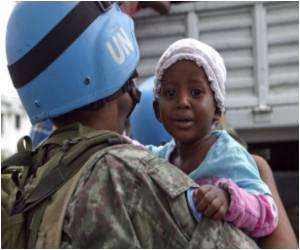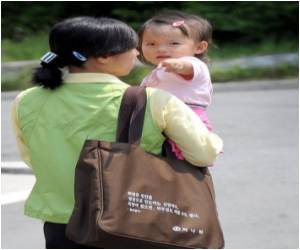In the corridors of this Johannesburg school, the children look like ordinary students. But they're all refugees who have survived war's horrors, coming to the school as a way back

"My parents used to say that they came to South Africa to look for a life, but I came to South Africa to learn and have a good education," said Ivan Imanalrakoze, a 13-year-old Rwandan refugee.
Ivan came from Rwanda in 2007. Like his friends, he has no birth certificate -- or money -- to enroll in a normal school. Here he receives a meal every day and gets a basic education that he hopes will allow him to further his studies.
He also gets a chance to run in the playground and laugh with friends, to be a normal kid.
"One of the things I think this project does, is that it returns childhood to children," said principal Colin Northmore.
Many of the children have stories like 13-year-old Grace Kashongo, who comes from Kivu, a province in the northeastern part of the Democratic Republic of Congo, where fighting between the army and rebels in late 2008 displaced at least 1.5 million people.
Advertisement
"Some people, they stopped us. I asked her, let's run, she said no, just wait. When we started running, they shot her behind the back of her head, with a gun. Then, they told me to disappear or they would kill me too," she said.
Advertisement
"I think here I am like at home, I feel fine, feel safe. That's because people are not running, they are not dead, I am happy."
Many of the teachers share stories similar to their students. They are also refugees, often political exiles.
"This is to help them integrate into public schools, to get used to the classroom environment and to writing in English. The rest they have to figure out themselves," said Esther Munonoka, a teacher from Rwanda.
The school does provide them with uniforms, but the students are asked when possible to pay their own transport costs, which run about 75 rand ($11, 7.60 euros) a month.
About 70 percent of the children come from French-speaking Africa, particularly the Democratic Republic of Congo and Rwanda.
Last year, about 30 students moved on to normal classrooms. But the transition can be difficult to make, as many schools are reluctant to take children with complicated backgrounds.
The programme is financed by foreign donors -- mainly Germans, Dutch and Americans.
South Africa struggles to educate its own children, with an assessment released last week indicating that only 17 percent of third graders could answer more than half the questions on a basic math test.
Combined with anti-immigrant tensions simmering across the country since a wave of xenophobic violence in 2008 left some 62 people dead, three2six is not always well perceived. South Africans accuse foreigners of fueling the nation's high crime rate and taking scarce jobs.
"It's very difficult to find funding for a program like this from South African funders because it's not politically correct to fund the problems of refugees when our own citizens have difficulties," Northmore said.
Source-AFP









